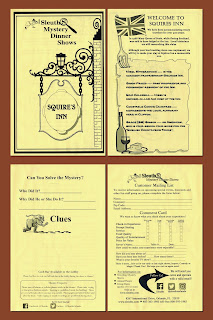by Steve Liskow
I used to conduct several writing workshops during the course of the year. My normal venue was libraries, moving to a couple of local writing retreats after Connecticut cut library budgets. The pandemic killed those workshops, too. Now, as more people get vaccinated, events are opening up again, some live and some remaining online.
I prefer live events because I like connecting with the audience. It's much easier to have a question and answer session live than online because you don't have to mute or unmute several people. It's easier to conduct writing activities and distribute handouts (I like handouts) or write on an easel for everyone to see. I can sell books, too.
In two weeks, I will join another crime writer for an online workshop through a library. We batted ideas around a few days ago and will have another phone session later this week. We want to come up with a coherent handout and some activities the participants can do online instead of merely listening to an hour-long lecture (Shudder...), but it's still going to be less interactive than a live show. I will hold up one of my books and encourage people to order it. So much for promotion.
What concerns me most is that the audience gets its money's worth. Some people may not figure out how to navigate Zoom, and others may show up late. Several may be the passive TV audience my theater friends and I used to carp about at intermission when we hadn't heard a response through the entire first act.
When I taught drama, I gave my students a handout on theater etiquette, and I'm modifying it only slightly here for people attending a workshop or reading.
1. Know what you've signed up for. We are crime writers discussing a pre-chosen topic, so don't ask us about poetry, memoir, or how to set up your website.
2. Show up on time. I once conducted a 90-minute workshop where a man arrived 25 minutes late. When I finished, he wanted me to re-cap what he'd missed. I had a 2 1/2 hour drive home ahead of me, so I declined. Ironically, when he reviewed the workshop, he complained that I didn't discuss the very topics he missed by being late.
3. If you're online, mute yourself except to ask questions. If you're live, silence your phone.
4. Feel free to ask questions. Questions show me where I need to be clearer or more specific if I do the same presentation again. Make your question a question and not an editorial.
5. I like to provide hand-outs at my workshops, but please don't ask for extras. The libary prints up as many copies as there are people who signed up for the event, or I bring that exact number with me. I don't bring extras, and some of them need explanation anyway. If your friend wanted one, he should have joined you so I could answer HIS questions, too.
6. If you're going to comment on my looks or fashion sense, do it out of my earshot.
7. Try to find it in you heart to buy a book. Or, better yet, persuade the librarian to buy one for the library so other people can find out about me. Yes, I DO take credit cards.
8. I distribute bookmarks and business cards. They list my website, and the bookmarks have my novels listed on the back. If you don't want them, give them back or to the librarian so he or she can put them on display. Don't simply drop them under your chair so somebody has to pick them up after you leave.
9. Feel free to come up afterwards to say hello or buy a book. But use a little tact or common sense. Years ago, I was selling my first roller derby novel at a roller derby bout, and a man suggested that I write a book about some other topic. I don't remember what that topic was, but I asked if he'd buy it. He told me he didn't read. I had several responses on the tip of my tongue, but I restrained them. I did kill the guy off in a later book, though.
I love writing. I love doing workshops and meeting people even more. Especially the nice ones.































